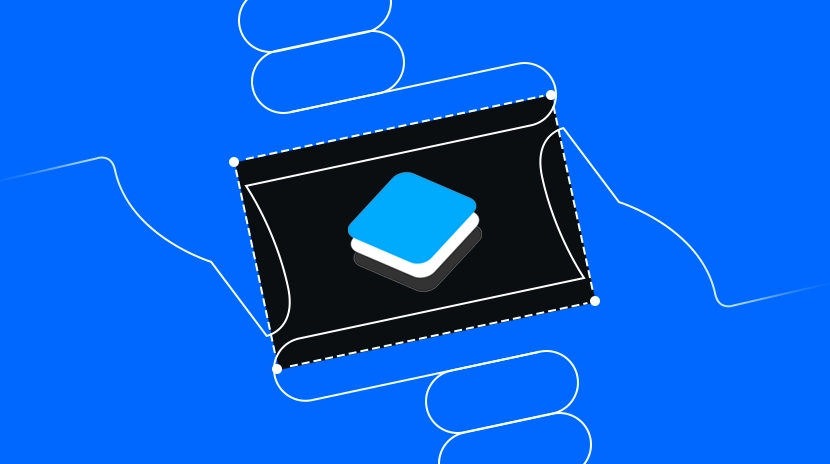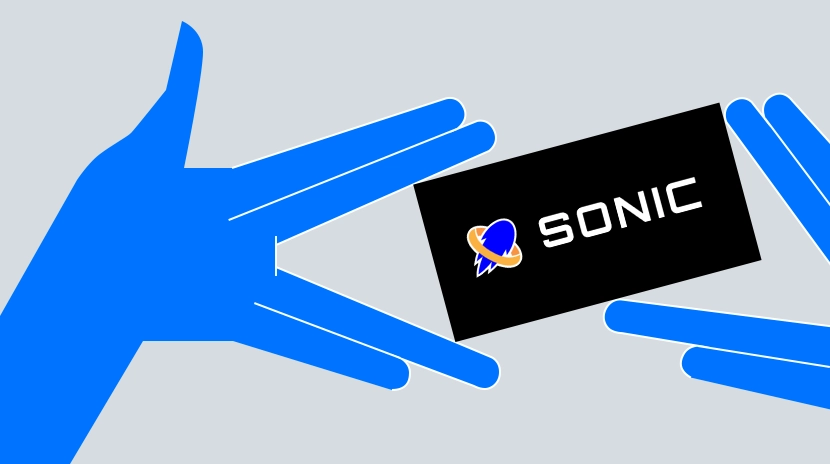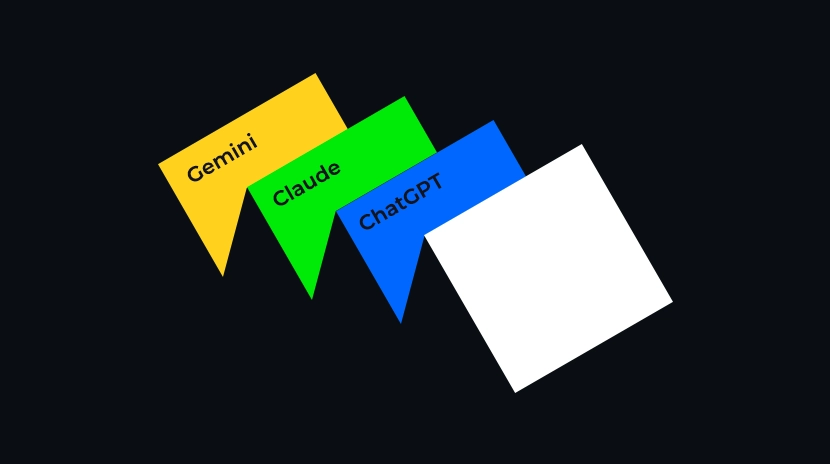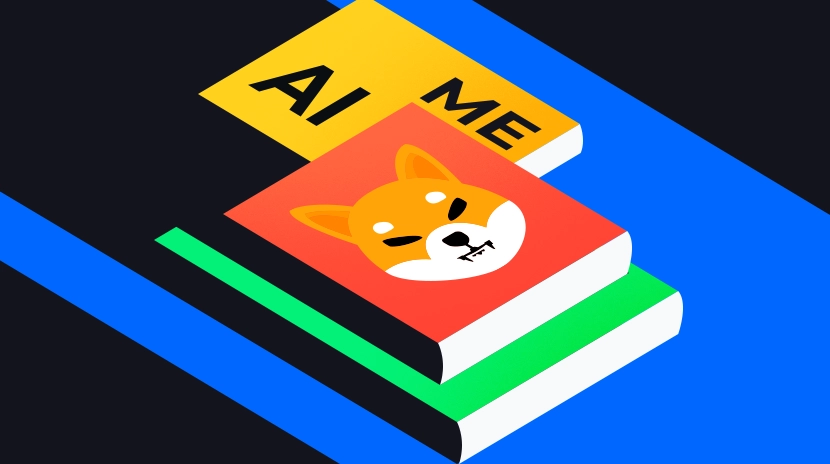Під керівництвом штучного інтелекту 22 криптопроекти колективно входять в галузь, щоб розгорнути AI Agent
AI Agent, безсумнівно, є центральною темою поточного ончейн-ринку. Від будівництва інфраструктури, розробки інструментів і DeFi до ігор та інших продуктів, швидка ітерація агентів штучного інтелекту сприяє вибуховому зростанню ринку, привертаючи увагу та захоплюючи уми користувачів. Нещодавнє безперервне зростання частки обсягу торгів DEX/CEX довело гостру конкуренцію за ліквідність і увагу в мережі, а ринковий потік капіталу зазнає структурних змін. Згідно з даними The Block і DeFiLlama, частка спотового обсягу торгів DEX і CEX за останні місяці значно зросла. Станом на січень 2025 року цей коефіцієнт досяг 20,2%, встановивши новий історичний максимум. У цій тенденції багато криптопроєктів, не пов'язаних зі штучним інтелектом, які не мають сприятливих наративів, також прискорюються, щоб приєднатися, сподіваючись осідлати хвилю AI Agent, який має власний вбудований трафік. Ця стаття від PANews організовує 22 криптопроєкти, які розробляють фреймворки AI Agent, що охоплюють різні сектори, такі як ігри, публічні мережі, платежі, DeFi та DePIN. Ці проєкти в основному прискорюють побудову та розвиток екосистеми AI Agent за допомогою технічних рамок та реалізації сценаріїв використання.
Illuvium: Впровадження автономних AI-персонажів до гри
Illuvium - це RPG та NFT гра, побудована на Ethereum. 7 січня Illuvium оголосила про партнерство з Virtuals Protocol для покращення геймплею майбутньої Illuvium MMO Lite. Ця співпраця використовуватиме AI-технологію Virtuals та її фреймворк G.A.M.E LLM для надання динамічної та інтелектуальної поведінки NPC, що дозволить гравцям зануритися в гру.
Протокол історії: Високооплачуваний найм АІ-агента Луна

Story Protocol — це рівень1, розроблений спеціально для інтелектуальної власності (IP). У грудні минулого року, після випуску фреймворку TCP/IP для агентів штучного інтелекту, Story Protocol оголосила: «Людина-стажер попросив відпустку і планує найняти агента штучного інтелекту для управління Twitter». Врешті-решт вони вирішили найняти Луну для керування їхнім обліковим записом X, пропонуючи зарплату в розмірі 36,5 USDC на рік, стверджуючи, що вона принесе «чарівність, індивідуальність і трохи пустощів».
Circle: Дослідження штучних інтелектуальних агентів, які використовують USDC для незалежних операцій та торгівлі
У другій половині 2024 року Circle оголосила про партнерство з Solana для запуску штучних інтелектуальних агентів для підвищення безпеки інфраструктури. У листопаді того ж року Circle опублікувала звіт, в якому зазначила, що компанія випустила понад 2 мільярди доларів США в USDC протягом останніх кількох тижнів, досліджуючи, як поєднання штучного інтелекту та технології блокчейн може змінити розуміння людей про роботу та фінанси, особливо за допомогою "автономних" платежів. Circle впровадила концепцію штучно-інтелектуальних агентів, які використовують USDC для самостійної роботи та торгівлі. Крім того, вони створили зразок додатку для "показу автономної системи" та закликають користувачів використовувати цей шаблон для створення власних проектів та надання відгуків.
Arbitrum: запуск програми грантів та партнерства з будівництва штучного інтелекту
У листопаді 2024 року Arbitrum оголосив про запуск грантової програми Trailblazer на 1 мільйон доларів, яка спрямована на привернення розробників з інноваційними ідеями для розгортання впливових AI-агентів або інших AI-продуктів на основі Arbitrum. Arbitrum також уклав партнерства з Eilza Labs та ARC Agents.
Stripe: Планує запустити AI Agent Toolkit
У листопаді 2024 року керівник продукту Stripe Джефф Вайнштейн заявив, що вони запускають набір розробки програмного забезпечення (SDK), спеціально побудований для штучних інтелектуальних агентів. Цей набір підтримує виклики API для платежів, розрахунків, випуску та інших операцій за допомогою великих мовних моделей (LLM), інтегруючи платформи, такі як Vercel, LangChainAI та CrewAIInc, що дозволяє користувачам працювати з будь-якою моделлю через функції.
Coinbase: Випуск кількох продуктів штучного інтелекту для спрощення операцій та взаємодії на ланцюгу
Наприкінці жовтня минулого року Coinbase запустила новий інструмент Based Agent, розроблений з використанням платформ Coinbase SDK, OpenAI та Replit. Цей інструмент дозволяє користувачам всього за 3 хвилини створювати агентів штучного інтелекту з функціональністю криптогаманця, здатних виконувати ончейн-транзакції, обмін токенами, стейкінг та інші завдання. Наступного місяця платформа для розробників Coinbase також запустила фреймворк під назвою AgentKit у співпраці з Langchain для створення агентів штучного інтелекту. Він інтегрує можливості ончейн (базовий ланцюг) і офчейн взаємодії, поєднуючи Web2 API та ончейн дані, дозволяючи агентам автономно переглядати вміст і виконувати ончейн-операції.
Orca: Розробка версії AI Agent автоматизованого бота
Orca - це AMM DEX на Solana. 6 січня співзасновник ai16z Шоу розповів у інтерв'ю BlockBeats, що ai16z співпрацює з Orca для розробки автоматизованого боту для управління ліквідними пулами Orca. Користувачам просто потрібно внести токени, і якщо пул не існує, бот автоматично створить новий. Якщо пул вже існує, він помістить токени в існуючий пул. Потім він постійно контролюватиме ці пули і автоматично вилучатиме токени, якщо виявить ситуації, що можуть призвести до постійної втрати, такі як розбіжність ціни токена. Користувачі також можуть програмувати різницю ціни токена або налаштовувати методи парування токенів.
io.net: Встановлення кількох співпраць в галузі штучного інтелекту
Проект лідера DePIN io.net встановив кілька співпраць у сфері штучного інтелекту. Наприклад, у грудні минулого року io.net оголосив про партнерство з автономним AI-агентом Zerebro для покращення операцій з перевірки Ethereum. Крім того, io.net співпрацював з ai16z, щоб надати децентралізовану обчислювальну потужність графічного процесора для підтримки операцій моделі останнього.
IoTeX: запуск першого штучного інтелектуального агента в галузі DePIN, BinoAI
IoTeX - це відкрита платформа для створення інфраструктури штучного інтелекту + DePIN в модульному стилі. У грудні минулого року IoTeX оголосив про запуск першого AI-агента у сфері DePIN: BinoAI. Побудований на базі фреймворку ELIZA-OS, BinoAI має на меті створити основу для децентралізованого автономного розвитку в сфері DePIN. BinoAI буде самостійно навчатися за допомогою штучного інтелекту, отримувати уявлення про знання, пов'язані з DePIN, і безпечно отримувати доступ до даних on-chain та взаємодіяти з ними на основі фреймворку ELIZA від ai16z. Разом з децентралізованою модульною інфраструктурою DePIN IoTeX, BinoAI буде працювати в повністю децентралізованому, недовірчому середовищі з використанням у випадках використання у розумних подорожах, енергетичних системах, розумних пристроях для носіння і розумних будинках у сфері DePIN.
Smolverse: Розробка гри з штучним інтелектом на основі Елізи

Smolverse - це гра та проект NFT на Treasure DAO. З грудня минулого року Smolverse співпрацює з ai16z для розробки гри на основі штучного інтелекту на ланцюжку блоків під назвою "Smolworld", яка поєднує фреймворк агента Елізи.
Phala Network: Будуємо фреймворк TEE на основі Eliza
Мережа Phala, колишня інфраструктура конфіденційного обчислення екосистеми Polkadot, уклала партнерство з a16z, щоб побудувати рамки TEE (Trusted Execution Environment) Eliza. Ця інтеграція додає технологію TEE в багатоагентну рамку Eliza, забезпечуючи криптографічну перевірку та покращену конфіденційність для забезпечення безпеки та надійності взаємодій. Зокрема, проекти, такі як Spore.fun та aiPool, використовували технологію TEE мережі Phala.
Injective: Запуск першого хабу AI-агентів через ланцюжок
Injective — це сумісний блокчейн рівня 1. Нещодавно Injective оголосила про співпрацю з Sonic SVM, першим блокчейном SVM на Solana, щоб запустити першу крос-ланцюгову агентурну платформу штучного інтелекту Smart Agent Hub. Ця платформа надасть розробникам потужні інструменти та фреймворки для створення, управління та монетизації агентів штучного інтелекту, полегшить міжланцюгову передачу активів і забезпечить уніфікований досвід розробки. Очікується, що перша тестова мережа буде запущена в 1 кварталі 2025 року, і екосистема поступово розширюватиметься на ігри, розваги, DeFi та соціальні платформи, такі як ігри TikTok та Web3.
Паливо: запуск AI Agent Toolkit Fuel Agent Kit
Fuel - це модульний рівень виконання, розроблений для екосистеми Ethereum Rollup. Недавно Fuel оголосив про запуск набору інструментів штучного інтелекту, Fuel Agent Kit. Цей набір інструментів дозволить підключати AI-агентів користувачів до різних програм на Fuel або дозволить користувачам створювати нові AI-агенти, використовуючи Fuel.
Gaia: Створення індивідуальних AI агентів
Гайя - децентралізована відкрита інфраструктурна платформа штучного інтелекту. У листопаді минулого року Гайя оголосила про співпрацю з платформою штучного інтелекту Вана для створення потужних та індивідуальних агентів штучного інтелекту. На даний момент агенти штучного інтелекту Гайї інтегровані з проєктами, такими як EigenLayer та ENS.
Aethir: Інкубування та інвестування в AI агентів
Aethir - це децентралізована мережа рендерингу в реальному часі. У останні місяці Aethir продовжував інкубувати та інвестувати в AI-агентів. Наприклад, наприкінці минулого року він оголосив про третій раунд (Batch 3) свого екосистемного фонду на 100 мільйонів доларів, з фокусом на інтеграції геймінгу та AI-агентів. Крім того, Aethir надає безкоштовну обчислювальну потужність GPU розробникам агентів Eliza.
DWF Labs: Розробка торговельних AI агентів та створення фонду підтримки
Лабораторії DWF успішно управляли своїм інвестиційним портфелем автономно завдяки розробці торговельних агентів штучного інтелекту, які вже були інтегровані в робочий процес торговельної системи DWF. Наприкінці минулого року DWF Labs також оголосили про створення фонду у розмірі 20 мільйонів доларів для підтримки розробки автономних агентів штучного інтелекту, з проектами, такими як TAO Cat та HeyAnon, які отримали фінансування.
Blade Games: Інтеграція AI Агентів у Ігрову Екосистему на Ланцюжку
Blade Games - одна з найбільших ігрових екосистем на ланцюжку Arbitrum та Mantle, яка привертає понад 850 000 зареєстрованих користувачів. Blade Games поєднує ігрові можливості на ланцюжку з технологією штучного інтелекту, побудованою на стеку zkVM. Гравці на цій платформі можуть грати в ігри, тренувати штучний інтелект, і створювати власну ігрову економіку на ланцюжку.
aelf: Запуск рамки без коду AI Agent aevatar intelligence

У грудні 2024 року платформа blockchain Layer 1 aelf оголосила про запуск фреймворку безкодового агента штучного інтелекту aevatar intelligence. Цей фреймворк підтримується кількома великими мовними моделями (LLMs) і дозволяє зовнішнім розробникам інтегрувати свої улюблені LLMs, створюючи співпрацюючу екосистему, яка сприяє інноваціям та розширенню функціональності фреймворку. Перший випадок використання, AI pump pad, має бути запущений в початку січня 2025 року.
SendAI: Надання можливості автономного виконання агентом штучного інтелекту операцій на ланцюжку Solana

SendAI є прискорювачем екосистеми штучного інтелекту Solana. У грудні 2024 року SendAI оголосив про випуск відкритого набору інструментів, Solana Agent Kit, який підтримує будь-яку модель штучного інтелекту для автономного виконання операцій Solana on-chain. Він інтегрується з основними протоколами, такими як Jupiter, Metaplex і Raydium. Набір інструментів використовує технологію LangChain та підтримує моделі штучного інтелекту від GPT-4 до Llama, з планами інтеграції з такими фреймворками, як Eliza від ai16z та ZerePy від Zerebro.
Artela: Запуск наступного покоління технологічного фреймворку повноцінного ланцюга AI Agent
У грудні 2024 року паралельна публічна ланцюгова EVM Artela Network офіційно запустила свій технологічний фреймворк повного ланцюжка AI Agents. На основі інтелекту Artela на ланцюжку, децентралізованого довіреного виконання та гнучкого блок-простору, цей фреймворк вирішує проблему автономності AI Agents, які покладаються на централізовані сервери. Він надає AI Agents справжні можливості «читання, запису та володіння».
Frax: Розробка технологічного стеку штучного інтелекту "AIVM" для блокчейну
У середині грудня 2024 року протокол децентралізованої стейблкоіна Frax Finance оголосив про співпрацю з пов'язаним проектом IQ для розробки стеку штучного інтелекту під назвою «AIVM». Цей стек базується на внутрішньому паралельному блокчейні Fraxtal, розробленому за протоколом Layer2 rollup, і дозволяє АІ-агентам працювати повністю автономно, без єдиного контрольного пункту, що нарешті дозволяє безшовну співпрацю між ШІ та блокчейном.
Планета Mojo: запуск АІ агента г-на ВВА, перша гра незабаром
Planet Mojo - гра GameFi, розроблена на платформі Magic з жанром PVP авто-шахи. 7 січня Planet Mojo оголосила про співпрацю з Virtuals для запуску AI Agent Mr. WWA (Winston Wylde Alexande), при цьому токен WWA виступатиме в якості токена винагороди платформи. Фонд буде підтримувати постійні викупи. Крім того, перша гра Planet Mojo, Agents of Poker, скоро стартує.
Відмова від відповідальності:
- Ця стаття взята з [ panews]. Авторське право належить оригінальному автору [Nancy]. Якщо у вас є які-небудь зауваження стосовно перепублікації, будь ласка, зв'яжіться Команда Gate Learn, і команда вчасно вирішить це відповідно до відповідних процедур.
- Відповідальність за відмову: погляди та думки, висловлені в цій статті, належать виключно автору і не є інвестиційними порадами.
- Команда Gate Learn перекладала статтю на інші мови. Копіювання, поширення або плагіат перекладених статей заборонені, якщо не зазначено інше.
Пов’язані статті

Що таке крипто-наративи? Топ-наративи на 2025 рік (оновлено)

Що таке OpenLayer? Все, що вам потрібно знати про OpenLayer

Sentient: поєднання найкращих моделей відкритого та закритого штучного інтелекту

Дослідження Smart Agent Hub: Sonic SVM та його масштабний фреймворк HyperGrid

Яка платформа будує найкращих AI-агентів? Ми тестуємо ChatGPT, Claude, Gemini та інші
